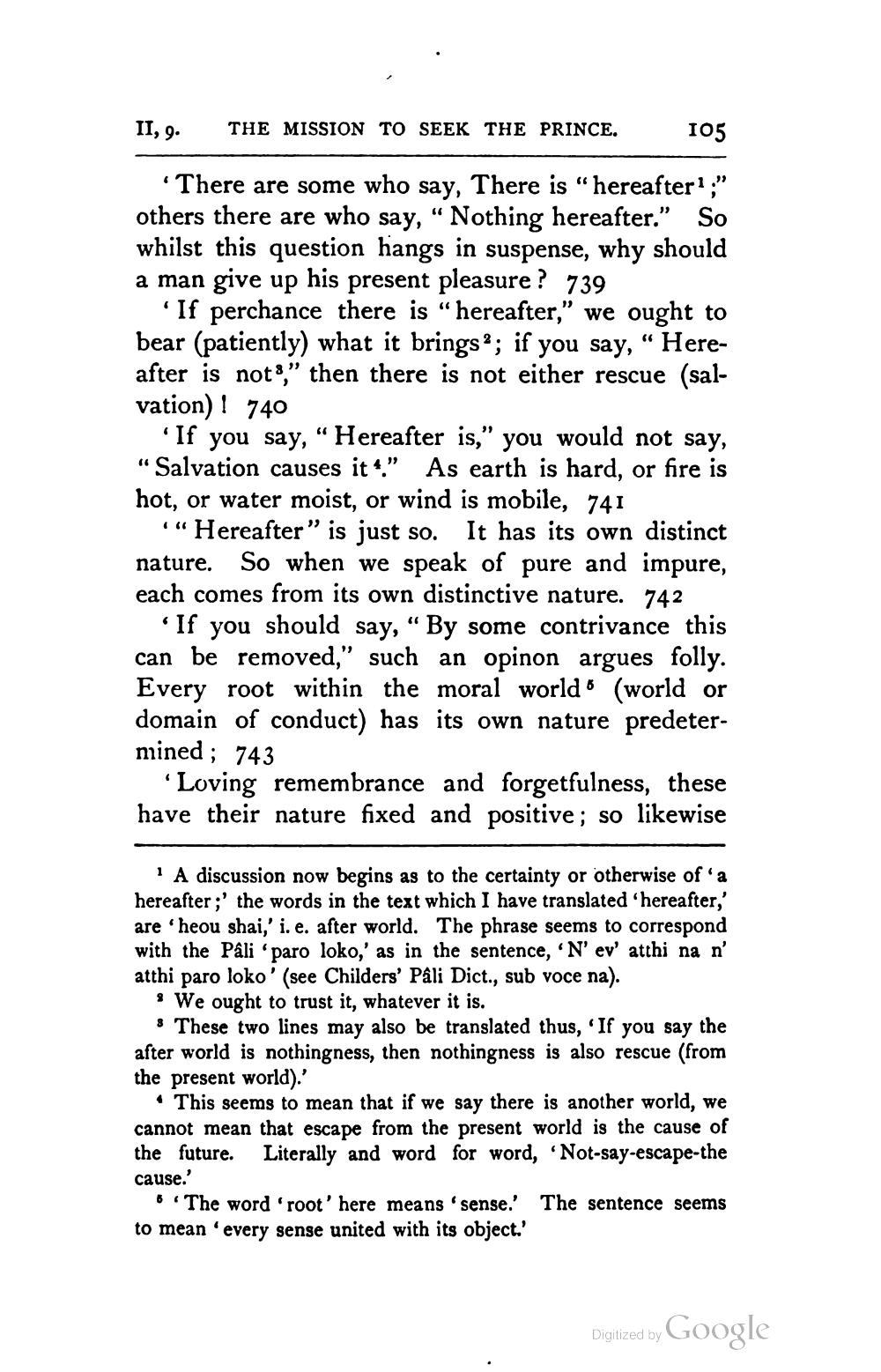________________
II, 9.
THE MISSION TO SEEK THE PRINCE.
105
There are some who say, There is “hereafter 1 ;" others there are who say, “Nothing hereafter.” So whilst this question hangs in suspense, why should a man give up his present pleasure ? 739
'If perchance there is “hereafter," we ought to bear (patiently) what it brings >; if you say, “ Hereafter is not3," then there is not either rescue (salvation)! 740
'If you say, “Hereafter is,” you would not say, "Salvation causes it 4." As earth is hard, or fire is hot, or water moist, or wind is mobile, 741
""Hereafter" is just so. It has its own distinct nature. So when we speak of pure and impure, each comes from its own distinctive nature. 742
'If you should say, " By some contrivance this can be removed," such an opinon argues folly. Every root within the moral world 6 (world or domain of conduct) has its own nature predetermined ; 743
Loving remembrance and forgetfulness, these have their nature fixed and positive; so likewise
A discussion now begins as to the certainty or otherwise of a hereafter;' the words in the text which I have translated 'hereafter,' are 'heou shai,' i. e. after world. The phrase seems to correspond with the Paliparo loko,' as in the sentence, 'N' ev' atthi na n' atthi paro loko' (see Childers' Pali Dict., sub voce na).
s We ought to trust it, whatever it is.
$ These two lines may also be translated thus, 'If you say the after world is nothingness, then nothingness is also rescue (from the present world).'
This seems to mean that if we say there is another world, we cannot mean that escape from the present world is the cause of the future. Literally and word for word, Not-say-escape-the cause.'
• The word 'root' here means 'sense.' The sentence seems to mean every sense united with its object.'
Digitized by Google




